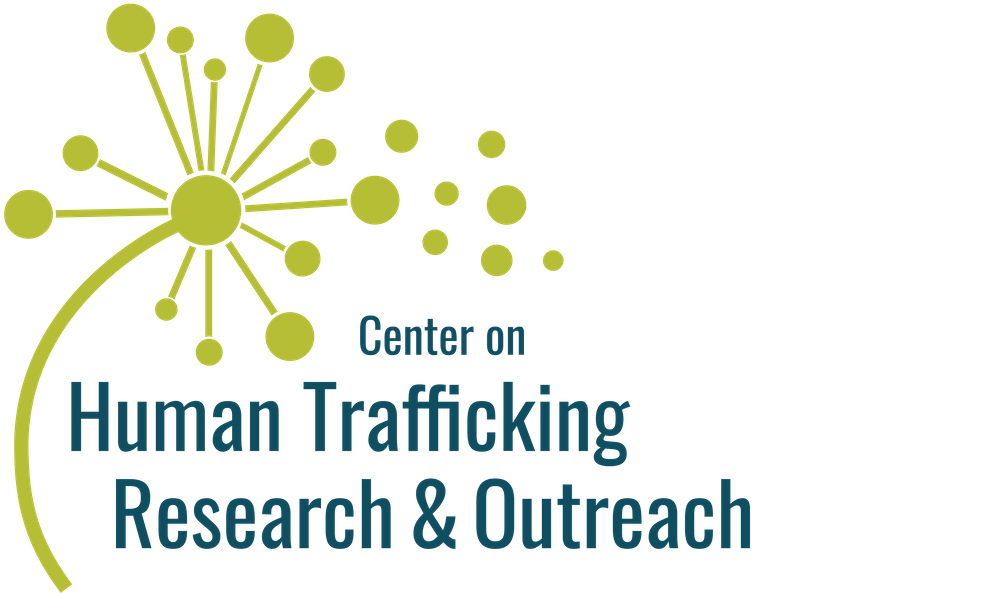Sierra Leone Journalists Trained to Increase Reporting on Human Trafficking
Monday, April 3, 2023

Child trafficking and child labor remains a problem in Sierra Leone, 12 journalists
learned during a four-day intensive media training on human trafficking hosted by
the Journalism Centre on Global Trafficking (JCOGT) and the Center on Human Trafficking Research & Outreach (CenHTRO).
Expert speakers helped journalists understand the scope of the issue in Sierra Leone. National and the international interventions deployed to combat human trafficking were addressed, as well as gaps in response still needed to counter the issue. Participants learned about the new Anti-Human Trafficking and Migrant Smuggling Act (PDF), passed in 2022, of which many participants were previously unaware. An anti-trafficking roundtable showcased the mechanisms now available in Sierra Leone to apprehend and prosecute traffickers.
Journalists also traveled to Kambia, where an estimated 34% of children have experienced trafficking, according to research by CenHTRO’s African Programming and Research Initiative to End Slavery (APRIES).
In Kambia, journalists interviewed district leaders, parent groups, law enforcement, and World Hope International, an NGO engaged in anti-trafficking programs with APRIES in Sierra Leone. Journalists visited the Guinea border, lorry parks, and markets to witness first-hand the effects of child trafficking and child labor in Sierra Leone.
During the training, which took place at New Brookfields Hotel on February 20-23, 2023,speakers from a wide range of disciplines joined journalists for in-depth discussions about human and child trafficking in Sierra Leone. Panelists including Sierra Leone High Court Judge Justice Adrian Fisher, National TIP Secretariat Executive Director Dehunge Shiaka, APRIES Think Tank expert Reuben Lewis, and IOM Senior Project Officer Mangeh Sesay explained policy, legislation, and program details to the journalists.
Journalists participated in a series of “skills” workshops, which included organizing, structuring, and reporting an investigation. They also worked on structuring a narrative and identifying stories. Journalists worked on ethics and reporting skills, with a strong emphasis on the ethics needed to report upon child and labor trafficking.
This unique fellowship program aims to encourage and promote top-quality journalism and reporting on human trafficking. The project seeks an increase of evidenced-based reporting on human trafficking, especially child trafficking, in Sierra Leone’s national and community print, audio, and broadcast media.
Journalists will receive financial assistance or stipends that enable them to report in-depth or investigative stories on human and child trafficking. JCOGT will coach and support select journalists over a period of months as they report, conceive, and publish impactful stories on human trafficking. Journalists will independently conceive and report their stories with no review or editorial direction from supporting organizations.
Overall support for the workshop and fellowships comes from the Center on Human Trafficking Research & Outreach (CenHTRO) and U.S. Department of State Office to Monitor and Combat Trafficking in Persons. These organizations did not participate in the review or selection of the fellows.
The 2023 Fellows are listed below.
Abdulaziz Samura, Standard Times Newspaper
Edna Ngegba, Radio Maria sierra leone Makeni
Zainab Sheriff, Media Matters for Women Sierra Leone
Marian Amaria Bangura, Africa Young Voices Media Empire (AYV)
Alhaji Haruna Sani, Concord Times Newspaper
Stephen Vandy Lansana, Premier News
Rachael Amara, Nyapui Radio
Alusine Sesay, Premier News
Mohamed Special Conteh, Future View Media Center via BBC Africa Eye
Mariama Suma, Sierra Leone Broadcasting Corporation
Alfred Koroma, Concord Times Newspaper
Erica Ruth Esther Bangura, Nyapui Radio
The activities described in this article were funded by a grant from the United States
Department of State. The opinions, findings, and conclusions stated herein are those
of the authors and do not necessarily reflect those of the United States Department
of State.
